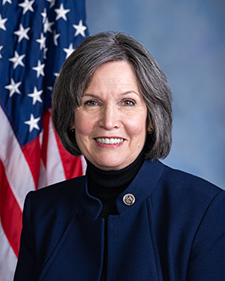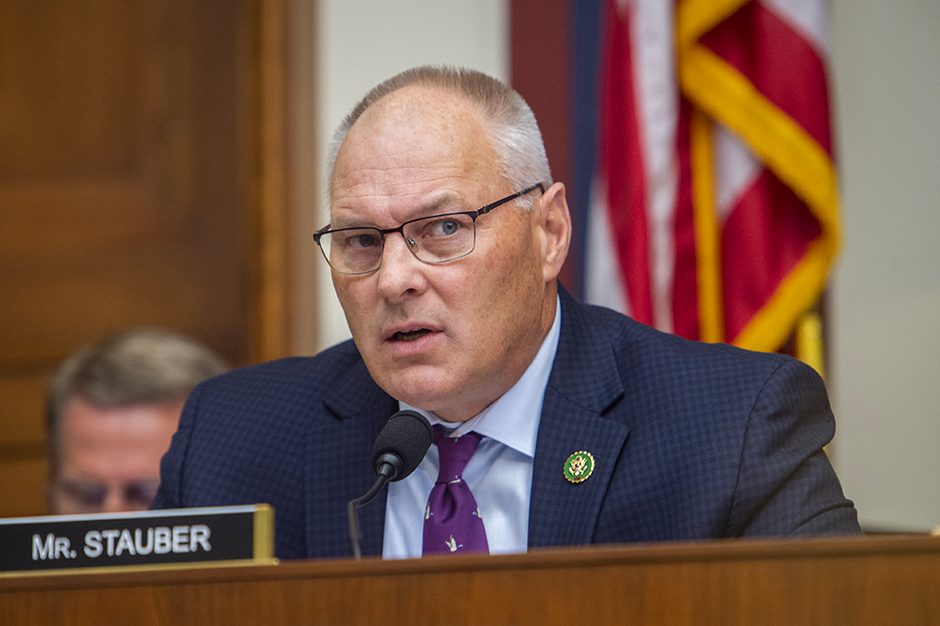


WASHINGTON — The new Congress and Donald Trump’s return to the White House has created new opportunities for Rep. Pete Stauber when it comes to his efforts to promote copper and nickel mining on the Iron Range.
As the chairman of the panel that has jurisdiction over mining issues in the House Natural Resources Committee, Stauber, R-8th District, is well positioned to push mining-related legislation.
“I’m excited about the work ahead,” he said.
Stauber was also chairman of that key panel in the last Congress and was able to get several mining-related bills approved in the U.S. House. But the legislation stalled in the U.S. Senate because the chamber was controlled by Democrats who ignored Stauber’s bills.
After November’s elections, control of the Senate shifted to the GOP, which could help Stauber’s efforts, and he has an ally in Trump, who said he supports efforts to expand mining on the Iron Range.
On Monday, one of the many executive orders Trump signed directed the Interior and Agriculture Departments to “reassess any public lands withdrawals for potential revision.” That could affect a moratorium the Biden Administration placed on sulfide ore mining on 225,504 acres of federal land and waters within the Superior National Forest.
Stauber said he plans to reintroduce his marquee bill, the Superior National Forest Restoration Act, this week. But even on a more favorable political playing field, the lawmaker still faces hurdles.
Stauber’s wide-ranging bill would reverse the Biden administration’s 20-year ban on copper and nickel mining in Superior National Forest and reissue key federal mineral leases to Twin Metals, a mining concern that has for decades tried to establish an underground copper, nickel, cobalt and platinum mine about nine miles southeast of Ely.

Stauber’s legislation would limit environmental and regulatory review of mine plans of operations within the Superior National Forest to 18 months and block judicial review of reissued leases or permits.
Environmentalists who oppose the expansion of mining also have their allies in Congress.
Rep. Betty McCollum, D-4th District, plans to introduce a bill Tuesday that would permanently establish the moratorium in Superior National Forest. Reps. Ilhan Omar, D-5th District, and Kelly Morrison, D-3rd District, are among the 17 Democratic co-sponsors of the bill.
McCollum’s legislation, called the Boundary Waters Wilderness Protection and Pollution Prevention Act, would not restrict taconite or iron-ore mining anywhere else in Minnesota. But the legislation faces strong political headwinds in the GOP-controlled House and Senate.
Currently, the revocation of two Twin Metals leases are under consideration by a three-judge panel of a federal appeals court in Washington, D.C.

The leases were renewed by the previous Trump administration and canceled in January 2022 under the Biden administration. A coalition of environmental groups, including Northeastern Minnesotans for Wilderness and the Wilderness Society, joined the Biden Interior Department in seeking to uphold the cancellation of those leases.
Some of the things Stauber’s legislation aims to accomplish can be done by Trump with a stroke of a pen. He campaigned on reversing the 20-year moratorium on mining in the Superior National Forest and there is speculation he will also try to reinstate Twin Metals’ leases.
Ingrid Lyons, executive director of Save the Boundary Waters, one of the environmental groups battling mining companies on the Iron Range, said Trump’s inauguration “kicks off the countdown to an all-but-certain and unprecedented revocation of Biden’s historic mining ban in the Boundary Waters watershed.”
“The robust record of science, law, public opinion, and economics is clear — copper mining does not belong on the doorstep of America’s most iconic landscapes,” Lyons said in a statement.
Those who oppose the introduction of copper and nickel mining in Minnesota say copper, nickel and other ores are in rock that contain sulfides, and when exposed to air and water those sulfides could generate acids that leach toxic metals into the water that feeds into the Boundary Waters.
Meanwhile, Twin Metals and other mining companies that have proposed projects in the state say they have the technology to protect the watershed.
Senate could be a challenge
Stauber said “he doesn’t want to get in front of President Trump’s executive orders” that could affect Twin Metals, but wants to move forward with his legislation anyway.
Stauber is also confident that another bill that would impact mining in Minnesota that passed the House but not the Senate last year will also be considered this year. That bill would streamline the federal permitting process and limit federal environmental review of proposed mining operations.
Stauber said that holding a Senate vote on the legislation could put Minnesota Sens. Amy Klobuchar and Tina Smith, both Democrats, on the spot. “Our two Minnesota senators will get a chance to vote on these mining bills,” he said.
Even with a GOP-majority Senate, Stauber would need the support of at least seven Democratic senators to reach the goal of 60 votes to overcome a filibuster.
Yet Smith opposes the legislation, a spokeswoman for the senator said. Klobuchar’s office did not have an immediate response.
“We don’t think he has the support in the Senate to withstand a filibuster,” said Becky Rom, chair of the Campaign to Save the Boundary Waters.
A key Stauber ally, Rep. Bruce Westerman, R-Ark., the chairman of the House Natural Resources Committee, told reporters last week that legislation that would clear the path for the Twin Metal project in Minnesota — as well as a copper mine in Arizona and another project in Alaska — could be attached to a budget reconciliation bill that, under Senate rules, is not subject to a filibuster.
Westerman said the Twin Metals project has been a “political ping pong ball” and that it’s up to Congress “to step up and say, ‘Quit the political ping pong and build the mine.’”
But Senate rules for a reconciliation bill says all items in the legislation should have budgetary impact, that is they must either cost or raise money, and it may be difficult for the proposed mining legislation to meet that requirement.
In any case, Twin Metals says it’s grateful for its support on Capitol Hill.
“Twin Metals Minnesota appreciates the champions in Congress that recognize the significance of the domestic mineral resources that are available in northeast Minnesota, which are urgently needed to accomplish our nation’s energy transition, job creation and national security goals,” the company said in a statement.
While environmentalists are lobbying lawmakers and taking mining companies to court to stop the development of copper and nickel production in Minnesota, there are those who want the expansion of an industry that is now largely limited to mining taconite, a sedimentary rock containing low-grade iron ore.
Virginia, Minn.-based Iron Range Engineering — a joint project of the Minnesota State system, Minnesota State University, Mankato, and Minnesota North College — teaches engineering to students who are employed by the mining industry. Its director, Ron Ulseth, said he’s “cautiously optimistic” about the political change wrought by November’s election.
“From my point of view, I’m excited for the opportunity for mining expansion,” he said. “We have something to offer the mining companies and look forward to serving them.”
But Ulseth is also skeptical that the new Trump administration can remove all obstacles, which include the requirement the state sign off on the new proposed operations, too.
“Why didn’t it happen between 2016 and 2020?” he asked, referring to the first time Trump was in the White House.

Ana Radelat
Ana Radelat is MinnPost’s Washington, D.C. correspondent. You can reach her at aradelat@minnpost.com or follow her on Twitter at @radelat.
The post Stauber, buoyed by GOP gains, again seeking to help Twin Metals, other mining companies appeared first on MinnPost.
















































